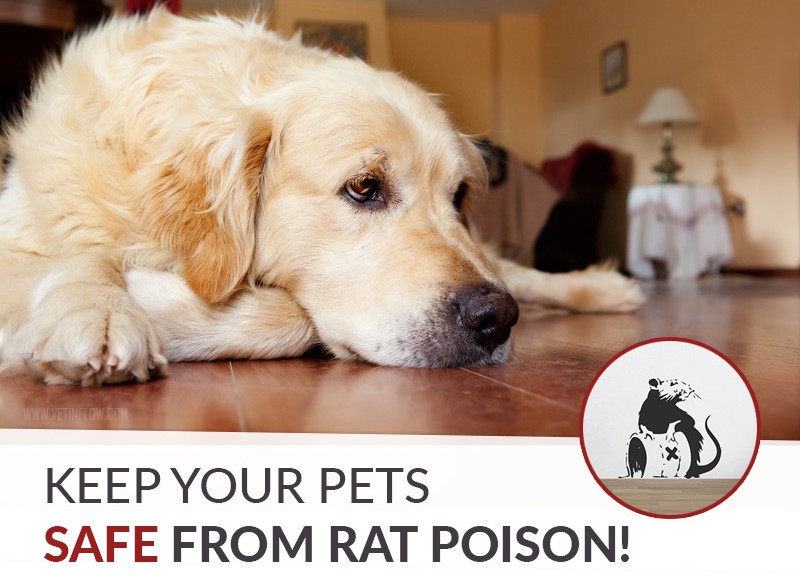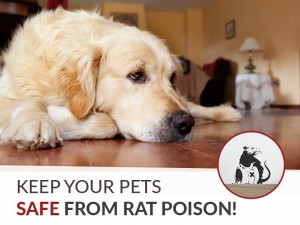Nowadays there are several types of rodenticides available for sale and sadly, our pets are often poisoned by these chemicals. These pellets often have strong blue or green colours. Many rodenticides are made with anticoagulant substances which will affect an animal’s ability to clot its own blood. As a result, poisoned rats die due to internal bleeding.
Although these substances are not meant for our pets, they often end up consuming the poisoned pellets by mistake or when they hunt and consume rats that have already been poisoned.
Affected pets will show many different clinical signs such as weakness, lethargy, blood in their urine, vomit or stool, pale gums, excessive bruising, bleeding from any minor wounds or abrasions, nosebleeds, severe external bleeding and internal bleeding (often not visible to the owner). Clinical signs of this type of poisoning often appear days after the chemicals are ingested.
A cat that may have eaten one poisoned mouse may not show any clinical signs since these circumstances involve a very small amount of poison but the risk of toxicity increases if they eat the poisonous substance more than once.
If you suspect your pet may have ingested rat poison it is very important toseek veterinary assistance as soon as possible! There is an antidote for this type of poisoning but starting your pet’s treatment early is essential for a good outcome.
The prognosis always depends on how severe is the animal’s coagulopathy. It might also be a good idea to bring the package of the chemical involved (if possible) to determine what type of rodenticide was ingested, since not all rodenticides contain anticoagulants.
Keep your pets safe!
Would you like to know more about cats and dogs? Check our Feline and Canine Courses:

